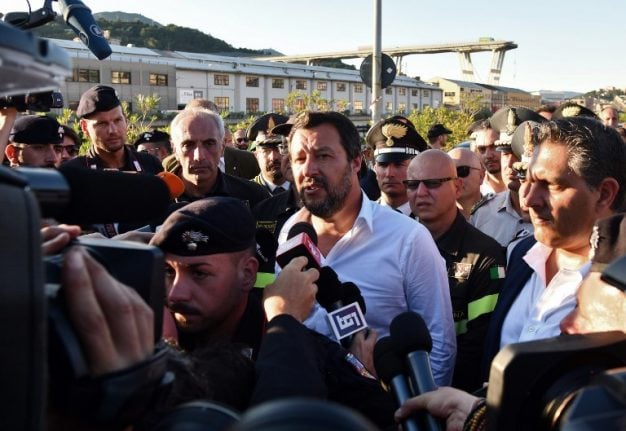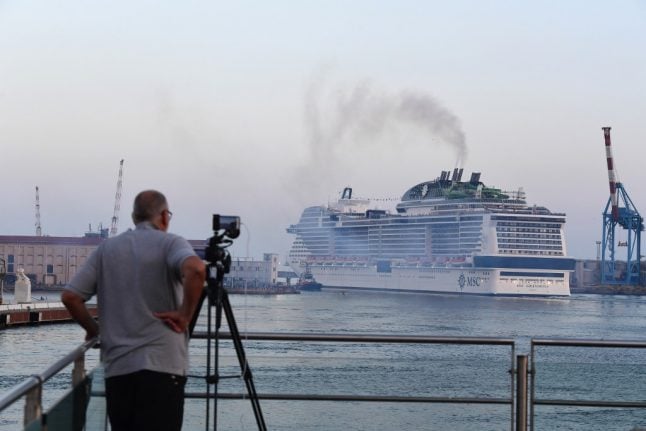Italy’s interior minister and co-deputy prime minister Matteo Salvini, who is also head of the far-right League party, said Thursday he was ready to open a dialogue with the company, reports La Repubblica.
But his Five Star Movement counterpart, co-deputy prime minister Luigi Di Maio, has doubled down on his position that the government must revoke its contract with the motorways operator as soon as possible, creating tension within the cabinet.
“Anyone who doesn’t want this will have to go over my dead body,” Di Maio told the TV channel La7 Thursday evening.

READ ALSO: Atlantia, Italy's motorway operator with global ambitions under scrutiny
The viaduct collapsed shortly before noon on Tuesday during a storm, bringing down with it a section of the A10 freeway along with 35 cars and several trucks.
38 have been confirmed dead in the disaster, Prime Minister Giuseppe Conte said Thursday, while Genoa's chief prosecutor has said that between 10 and 20 people are still missing.
The exact cause of the collapse is still unknown, but some bystanders said they saw lightning hit one of the support columns before it went down. The Morandi Bridge has been plagued with structural problems since it was first constructed in the 1960s.
#Genova #16ago: continuano le operazioni di ricerca dei dispersi, 380 #vigilidelfuoco impegnati. Nelle immagini la ricognizione di #dragovf 60 pic.twitter.com/DNyQAvAoSe
— Vigili del Fuoco (@emergenzavvf) August 16, 2018
At a press conference Wednesday Salvini, Di Maio, infrastructure and transport minister Danilo Toninelli, and Prime Minister Giuseppe Conte all said they would immediately revoke the government’s contract with Autostrade and fine the company 150 million euros.
But on Thursday it became clear that prematurely revoking the contract, which is not due to expire until 2042, will incur a penalty of between 15 and 20 billion euros unless the government can demonstrate that Autostrade was at fault.
The concessionaire, whose parent company Atlantia's share value plunged 22.26 percent yesterday, insisted it had met all its obligations in maintaining the structure.
READ ALSO: Revoking motorway contract 'could cost government billions'
Salvini has called on Autostrade to pay 500 million euros in compensation to the victims of the collapse and said his priority now is “to immediately obtain funds and interventions to support the relatives of the victims, the wounded, the 600 displaced and the whole community of Genoa.”
“We'll talk about the concession later,” he added.
Stiamo facendo di tutto perché #Autostrade APRA IL PORTAFOGLI per aiutare i parenti delle vittime, le persone coinvolte, gli sfollati e la città.#Genova non può aspettare, i feriti non possono aspettare. pic.twitter.com/VBWNoOXhmV
— Matteo Salvini (@matteosalvinimi) August 17, 2018
Toninelli also appeared to have toned down the force of his rhetoric, writing in a Facebook post Thursday that the Ministry of Transport had commissioned an independent investigation into the collapse which will be concluded within one month and could lead to the “potential” revocation of Autostrade's contact.
The Transport Ministry said in a statement published to its website yesterday that it will issue a formal request to all of Italy's road, highway, and dam operators to provide the ministry with risk assessments for each of the structures by September 1.
READ ALSO: Search for survivors goes on as anger mounts over Italy bridge collapse



 Please whitelist us to continue reading.
Please whitelist us to continue reading.